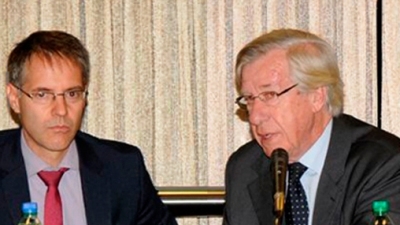In Uruguay, a recent research shows that the poorest segments of the population, victims of domestic violence and workers under age 18 are likely to have one thing in common: they lack knowledge about their rights and about the instrument the State has to protect them.
A joint initiative by the World Bank and the Uruguayan Parliament, can help change this scenario by fostering visibility of three laws that protect social rights for these vulnerable populations.
The Family Allowance Act, the Law on Hazardous Labour for Minors in the Rural Sector and the Domestic Violence Act, are the three pieces of legislation whose dissemination and effective implementation will be monitored by the project.
“The efforts made by the three branches of government in their contribution to this project seek to attain social equity, and enhance citizens’ awareness as to their rights”, said the World Bank Representative in Uruguay, Mr. Peter Siegenthaler.
“The project aims at supporting the development of public policies and enhancing the quality of legislative work”, added the president of the General Assembly, Danilo Astori.
A US$ 385,000 grant was awarded by the Bank to the Uruguayan government to help the project implementation.

